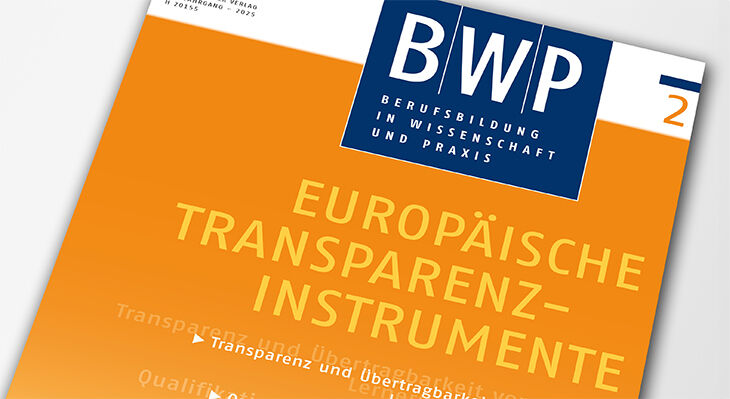Competence development in vocational education and training
Competencies are of great importance across all educational sectors. They are regarded as being integrative and as offering connectivity for various programmes in vocational education and training, general education and higher education. The implementation of competence orientation in the educational system creates starting points that enable institutional programmes and individual learning experiences to be linked.

This connection is achieved via vehicles such as documentation, identification and recognition of learning outcomes, and facilitates the establishment of more open access to education, occupations and employment.
In vocational education and training, competence development has been viewed as an objective of the educational process since the 1980s. The alignment of regulatory instruments governing company-based training and school training methods to “self-contained activities” and the stipulation that the key objective of vocational education and training should be the acquisition of employability skills represent important benchmarks within the realisation process. For the purpose of implementation of competence orientation in VET and the fostering of competence development in initial and continuing training, the Federal Institute for Vocational Education and Training (BIBB) conducts research projects on the structuring and execution of competence-oriented standards, on the modelling of competencies, on competence assessment, and on the analysis of factors influencing competence acquisition.

